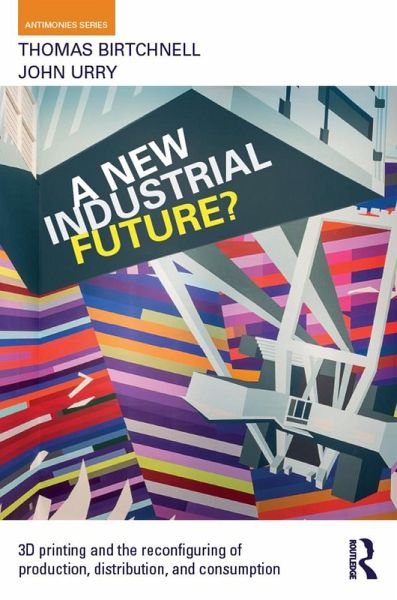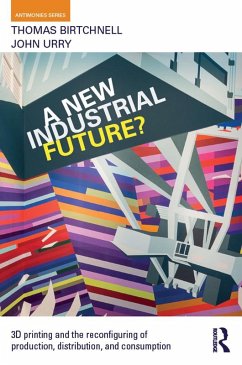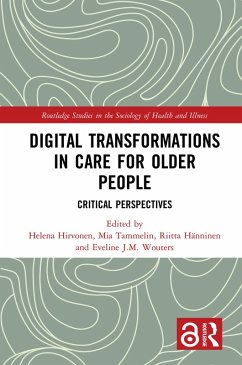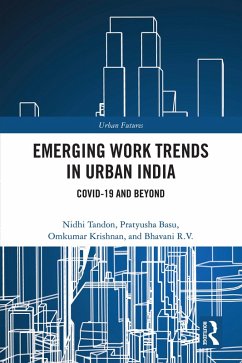
A New Industrial Future? (eBook, PDF)
3D Printing and the Reconfiguring of Production, Distribution, and Consumption
Versandkostenfrei!
Sofort per Download lieferbar
32,95 €
inkl. MwSt.
Weitere Ausgaben:

PAYBACK Punkte
16 °P sammeln!
A New Industrial Future? examines whether a further industrial revolution is taking place around the world. In this compelling book Birtchnell and Urry examine such a new possible future involving the mass adoption of 3D printing. The locating of 3D printers in homes, offices, stores and workshops would disrupt existing systems and pose novel challenges for incumbents. The book drawing upon expert interviews, scenario workshops and various case studies assesses the potential future of global manufacturing, freight transport, world trade and land use. It offers the first book-length social scie...
A New Industrial Future? examines whether a further industrial revolution is taking place around the world. In this compelling book Birtchnell and Urry examine such a new possible future involving the mass adoption of 3D printing. The locating of 3D printers in homes, offices, stores and workshops would disrupt existing systems and pose novel challenges for incumbents. The book drawing upon expert interviews, scenario workshops and various case studies assesses the potential future of global manufacturing, freight transport, world trade and land use. It offers the first book-length social scientific analysis of the character and impacts of a new system of manufacturing that is in formation. The book will be of interest to urban planners, policy makers, social scientists, futurologists, economists, as well as general readers by offering inquiry on this future upheaval in the means of production.
Dieser Download kann aus rechtlichen Gründen nur mit Rechnungsadresse in A, B, BG, CY, CZ, D, DK, EW, E, FIN, F, GR, HR, H, IRL, I, LT, L, LR, M, NL, PL, P, R, S, SLO, SK ausgeliefert werden.













